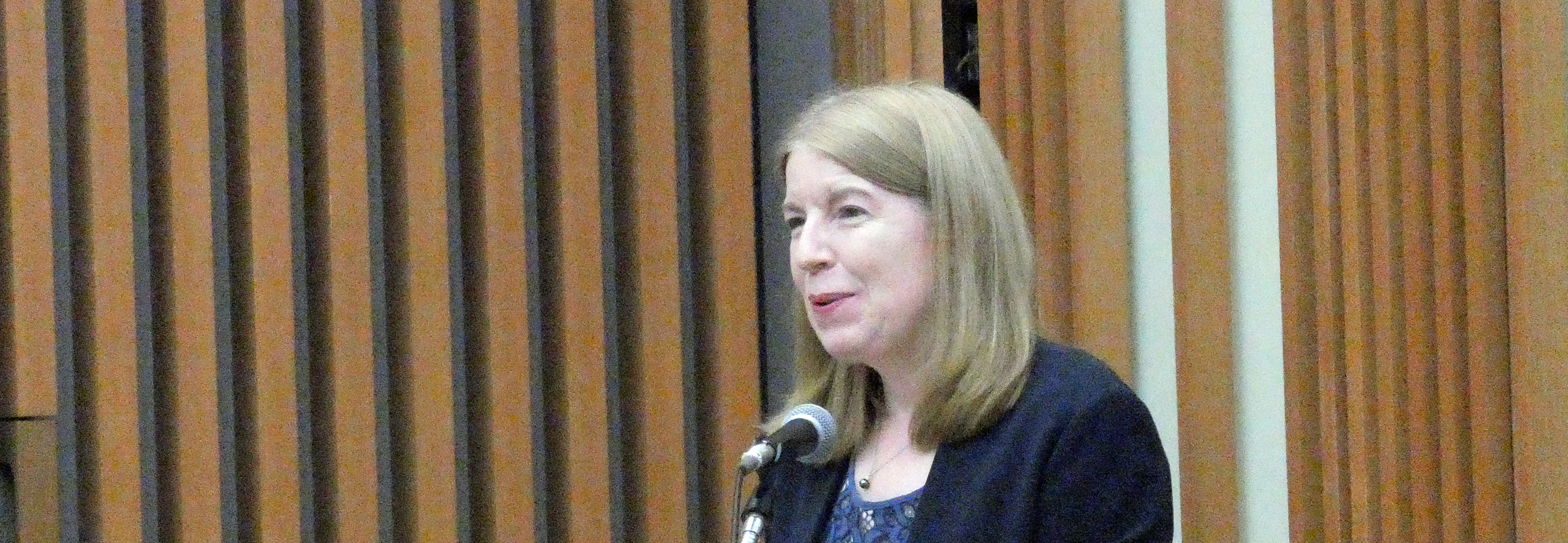
Seminar The Future of Japan-U.S. Trade in an Uncertain Global Economy and Japan’s Role Christina L. Davis, Harvard University
July 04, 2025
Tokyo
Dr. Christina L. Davis, Director of the Japan-U.S. Relations Program at Harvard University, was invited to speak about “The Politics of Uncertainty in the World Economy: Economic Security, Sanctions, and the Future of the International Trading System.” The seminar drew over 70 executives and public relations professionals from KKC member companies, who actively engaged in dialogue with Dr. Davis.
International Instability Caused by U.S.-China Rivalry and the “America First” Policy
Dr. Davis highlighted how escalating trade tensions and retaliatory sanctions between the United States and China have contributed to significant instability in the global economy. She noted a shift in U.S. trade policy away from multilateral frameworks like the World Trade Organization (WTO) toward bilateral negotiations, a trend that is affecting many countries, including its allies.
The Trump administration is strengthening protectionism under the “America First” slogan and is disrupting the international trade order, particularly through aggressive tariff policies. Dr. Davis analyzed that U.S. trade policy is influenced by populism, and domestic political divisions are undermining the stability of U.S. trade policy.
Meanwhile, China is promoting a state capitalism economic model, damaging the credibility of international companies through export restrictions and opaque trade barriers. The sanctions war between the U.S. and China is spreading to strategic sectors such as rare earths and semiconductors, entering the age of “weaponized interdependence” that increasingly affects third-party nations. Dr. Davis emphasized that trade policy is now functioning as a diplomatic tool, though it carries risks of economic retaliation and increased uncertainty.
Reassessing Japan’s Response and the Role of the WTO
In response to these developments, Japan enacted the Economic Security Promotion Act in 2022. Japan’s approach to protecting critical technologies and strengthening supply chains while pursuing independence from economic coercion stands out for prioritizing rules-based diplomacy rather than retaliatory tariffs. Japan has historically been affected by sanctions and, based on these experiences, has pursued a cautious and cooperative economic security policy.
Dr. Davis questioned the effectiveness of sanctions, citing Cuba and Iran as examples where sanctions may have reinforced authoritarian regimes and politicized the international economy. In such uncertain circumstances, many countries are increasingly emphasizing the importance of reliable trading partners and adopting “friend shoring” and “China Plus One” strategies. As trade diversification progresses, the role of the WTO is being reevaluated. Concerns have emerged over the abuse of tariff measures for national security reasons. To ensure that it is not reduced to a mere formality, Dr. Davis stressed the urgency of institutional reform within the WTO, such as clarifying exception provisions.
While the WTO has struggled to cope with large-scale trade disputes, it continues to play a significant role in smaller-scale cases involving technical barriers to trade and adjustments of trade regulations. Dr. Davis noted that average American citizens continue to support complying with WTO rulings, suggesting that a return to a rules-based trading system remains possible as political dynamics evolve.
The economic interdependence between Japan and the U.S is also highly beneficial for national security. In a situation demanding strategic leadership and multinational cooperation, Dr. Davis expressed optimism about Japan’s potential to contribute to the reconstruction of a stable trade order.
